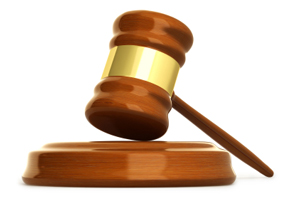
Medtronic‘s (NYSE:MDT) notched a major win today with a unanimous Supreme Court ruling in its favor that it does not bear the burden of proof in a long-standing patent war with rival Boston Scientific (NYSE:BSX), which holds exclusive licensing rights to fundamental cardiac rhythm therapy patents owned by Mirowski Family Ventures.
The court ruled this week that MFV must prove that Medtronic’s devices are in violation even though Medtronic filed the original challenge against the patent in 2003, while still under a sub-license agreement for the technology.
Since Medtronic brought the initial lawsuit while still under the licensing agreement, it created a unique situation that raised questions about who was the plaintiff and who was the defendant in the case.
"Simple legal logic, resting upon settled case law, strongly supports our conclusion," Supreme Court Justice Stephen Breyer wrote in the ruling. "It is well established that the burden of proving infringement generally rests upon the patentee."
Deciding otherwise would leave too much ambiguity in the patent system, Breyer added. He imagined a scenario in which Medtronic could be found guilty of infringement if it was unable to prove otherwise, and yet a company engaged in the same behavior could be found not guilty of infringement because Boston Scientific would still bear the burden of proof in standard patent lawsuits.
"Both sides might lose as to infringement, leaving the infringement question undecided, creating uncertainty among the parties and others who seek to know just what products and processes they are free to use," Breyer wrote. "General considerations relating to the public interest in maintaining a well-functioning patent system are, at most, in balance, and do not favor changing the ordinary burden of proof rule."
Medtronic tallied a win today, but the lawsuit isn’t over.
"We are very pleased with the Court’s unanimous ruling, which affirmed in this case there is no reason burden of proof law should favor the patentee," Medtronic vice president and acting general counsel Neill Ayotte said in prepared remarks. "The case will now be remanded back to the Federal Circuit court for further review of other issues in the Mirowski appeal."
History
The long-running dispute concerns fundamental CRT technology covered patents issued to CRM pioneer Dr. Morton Mower, credited with inventing the technology that ultimately became known as a cardiac resynchronization therapy device. Family Ventures owns 2 of the CRT patents, which it exclusively licenses to Guidant Corp., which Boston Scientific acquired in 2006 for an eyebrow-raising $26 billion.
Medtronic in 1991 entered into a sub-license agreement for the patents with Eli Lilly (NYSE:LLY), which owned Guidant at the time. The agreement gave Medtronic leverage to challenge 1 of the patents, which the company began doing in 2003. Since then the various companies involved have been fighting over the validity of 1 of the MFV patents and over Medtronic’s alleged infringement, going round after round in a series of lower courts.
The lawsuit reached the Supreme Court as a debate over which party bears the burden of proof when a patentee, Boston Scientific, claims infringement by a licensee, Medtronic.
Delaware District Court Judge Susan Robinson ruled in April 2011 that the burden rested on the patentee, and in September 2012 Federal Circuit Judges Richard Linn, Alan Lourie and Sharon Prost agreed, concluding that a lower court had mistakenly put the burden of proof on MFV when Medtronic had "disturbed the status quo" with its lawsuit.
In April 2013 the U.S. Solicitor General filed an amicus curiae brief that effectively backed Medtronic, arguing that a lower court ruled incorrectly that Medtronic bears the burden of proof in demonstrating that its products do not infringe on the patents in question. The patent holder should always bear that responsibility, according to the brief.
Repercussions
Legal analysts have warned that the Solicitor General may have failed to take into consideration the unique nature of the litigation and the precedents set by a 2007 Supreme Court decision in a lawsuit between MedImmune and Genentech. The court ruled in that case that a licensee can challenge the validity of a patent without canceling the licensing agreement, shifting to the licensee a significant amount of power during negotiations.
The Solicitor General argued in its brief that the lower courts that put the burden of proof on Medtronic forced the company, as the "alleged infringer," into a position of having to demonstrate that it does not violate any given patents. Medtronic would have to effectively "identify and negate every conceivable theory on which the product could infringe."
That may be an exaggeration as well as a misrepresentation of the somewhat unique nature of the case, according to attorney Andrew Williams, writing for Patent Docs.
"This is the 1st time since the enactment of the Declaratory Jurisdiction Act that an ‘accused infringer’ has had the burden of proving non-infringement," wrote Williams, who is a partner with McDonnell Boehnen Hulbert & Berghoff LLP. "But the use of the term ‘accused infringer’ in the brief highlights the appropriateness of this argument in this context – the declaratory-judgment plaintiff is a licensee, and therefore is not necessarily being accused of infringing. Rather, the licensee has entered into an agreement by which it has a right to practice the patented technology. Therefore, even though it cannot be presumed that the declaratory-judgment plaintiff has conceded infringement because of the existence of a license, the fact that MedImmune creates a unique situation must be acknowledged."

